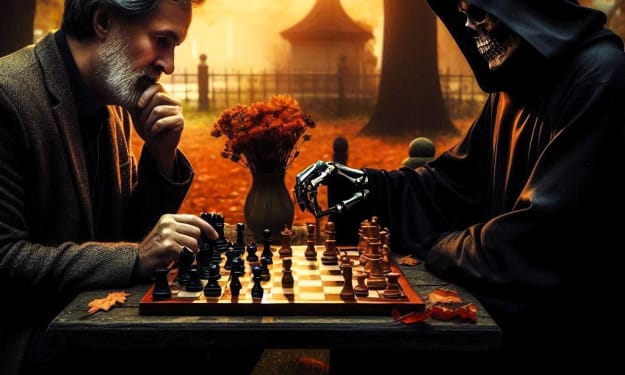Coping with a Bipolar Diagnosis
How I Learned I Had A Misunderstood Disorder

I can’t cope with most things, let alone the diagnosis I received two years ago of Bipolar II.
I was 20 years old as I re-entered the world of therapy, the first time since I was 15. I met with a woman, which was my only request. I didn’t yet know about shopping around for therapists or the different types of therapy. After an explosive friendship ending, where I had escalated the situation to nuclear levels, my therapist told me the news. I had Bipolar. I knew it was coming because I watched my dad struggle through it my entire life, but I had hoped it skipped me. She saw it in the way I cycled, quickly, through mania and depression. I had thought it was just depression because my mania usually looked like pulling an all-nighter and starting a new hobby, or finally cleaning my kitchen. She called it Bipolar II.
I knew about Bipolar Disorder only through media representation, which wasn’t good. I saw Ian Gallagher on Shameless steal a baby whilst manic. I, decidedly, did not steal babies. Truthfully, for some, it can get that bad. But, in reality, it was draining more than anything else. The depression is low. It’s so low that every time it comes around, I need to be consoled. It is so low that I call out of work because nothing seems to matter. My future and my career are just side effects of being alive, rather than aspirations or passions. Then, maybe on a random Tuesday, the fog lifts and suddenly I find myself eating three meals a day and exercising again. I look back and think, “Why did I ever feel like that?”. Then I keep climbing, my mood increasing and attaining unreachable levels. Then it feels like someone slipped me the world’s strongest antidepressant and I am smiling so much it hurts. I will tell my partner how badly I want to get married, in Vegas, right now. I say I will open a business, or two! I put in extra hours at work, I work overtime for the whole week. And I cycle through this again and again.
Except, one thing that getting a diagnosis meant was getting medicated. I am usually willing to try anything when I am low, so I started medicating. I knew that antidepressants and SSRIs generally made me manic when I took them regularly, so I was stuck with mostly antipsychotics. I found a name-brand one that costs thousands of dollars a month without insurance, but $30 on my parent's insurance. Now every month I take time to think of those with Bipolar and without insurance. I recognize my privilege, don’t worry.
Being on medication has made a difference. In the beginning, it was a very big difference. I felt a little hollow. I wasn’t depressed, but I stopped smiling so much. I longed for the happiness I felt while life-destroyingly manic. That was the biggest adjustment, not feeling the joy and carelessness. Two years on this medication means that I am more stable, but I have found my way back to happiness. A lot of people with Bipolar won’t stay on medication because of its effects, I’m told. I considered trying a different, less severe medication, but I decided that, in the end, I valued my stability and schedule more than feeling a specific way. This much time on the medication also means that those feelings are a distant memory so I don’t crave it so much anymore.
So, why did it take me until the start of my 20’s to get diagnosed with Bipolar II?
Well, kids are hard to diagnose. They aren’t always accurate self-reporters and they are going through puberty and hormonal changes that don’t balance out until adulthood. I had the benefit of a psychiatrist, but he didn’t notice my cycling and only paid attention to the lows. He still does not even spell my name right, despite seeing me regularly since I was 14. It was only through weekly meetings with a mental health professional that someone noticed what I was going through wasn’t just a bout of depression or the chronic mood disorder I had been so vaguely diagnosed with at 13.
If you think you have Bipolar I or II then I strongly encourage seeking professional help if it is negatively impacting your life. It is up to you whether medication is right for you, but I can assure you that it is not as soul-sucking as it seems at first. It can make unimaginable things possible. Good luck to all.
About the Creator
Charlie Ryder
Gen Z in college concerned with all things social, writing, witchy, advice, and coffee related.





Comments
There are no comments for this story
Be the first to respond and start the conversation.